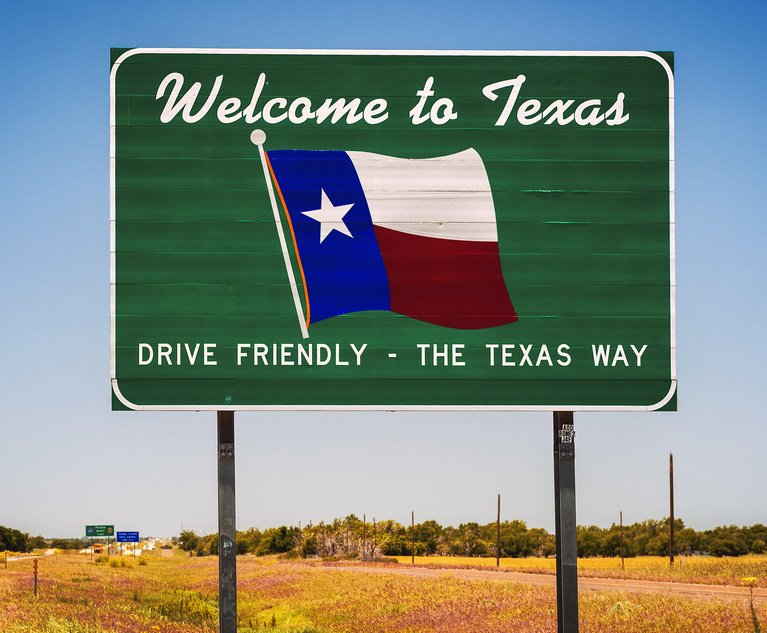It is no "small" question: How do you sell insurance products toa company that doesn't understand its exposures, that doesn't havea lot of capital, and whose owner often doesn't want to do muchbeyond "point and click" when it comes to purchasing the coveragethey do buy?
|And why should agents consider trying to sell tothese prospects, considering the amount of premium (and commission)to be gained versus the amount of work they may have to put intoit?
|Yet a number of major carriers — and many savvy agents — arecurrently targeting small business with renewed vigor, devotingextensive resources to this difficult-to-crack market. Some are using technology, social media, andpredictive analytics; others are leveraging theirrelationship-building skills. Small business, they maintain, is thegreat untapped market that holds a bounty of promise for theP&C industry.
|Small businesses underserved
"One of the largest and most positive opportunities is to writesmall business insurance in America," says Tom Barrett, presidentof the Midwest and Southeast regions of the Strategic Insurance AgencyAlliance (SIAA). He adds, there are thousands of businesses"overlooked by the insurance and broker communities that aretotally underserved."
|Many insurance carriers are likewise bullish on the smallbusiness sector. "We love the small business market; it's thebackbone of America," says Mike Seling, vice president of businessdevelopment/regional operations for Accident FundInsurance Company of America, a mono-line company in Lansing,Mich., that specializes in workers' compensation coverage. "What'smore," he adds, "it is tremendously profitable.
|"From a retention perspective, it stays around longer; it's notshopped," he points out. "We want to write more of it."
|Trust must be established
Tiku Raval, senior vice president at Ironshore's SmallBusiness Insurance unit, concurs: "The market itself is huge, withabout 28 million small businesses representing nearly $100 billionin premium. There is tremendous opportunity ahead."
|As in any agent-client relationship, value must be proven — and trust must beestablished. "One of the biggest challenges small-businessowners face is a full understanding of their risk exposures, and inturn, knowing exactly what coverages they need to protect theirbusiness and themselves," says Jim Williamson, division presidentof North America Small Commercial for Chubb.
|
Knowing your prospect
The first step to tackling this market is gaining a thorough understanding of both theneeds of the small-business owner and the products available tothem.
|Many insurers offer Businessowners' policies (BOPs), which are"uniquely designed to serve a small business owner," explains MikeDeHetre, vice president of underwriting and product development atTravelers.Although BOPs typically include general liability, property andbusiness interruption coverage, some larger insurers often try tocustomize the BOPs for the particular business. Clients need to be informed from the start thatBOPs do not provide professional liability, auto insurance,workers' compensation or health and disability coverage.
|Pressed for money & time
Small-business owners are often pressed for two things: moneyand time. The former, says Christine Sadofsky, a managing principalat IntegroU.S.A. Inc. in New York City, "is a catch-22 issue because if aloss occurs, they don't have the financial backing to defendthemselves," so it's imperative that they allocate the rightfunding to cover the major exposures.
|Additionally, "That owner is wearing many hats, concentrating onthe business 12 to 14 hours a day," said Steve Tombarelli, vicepresident of the SIAA's Business Insurance Advantage program.
|Knowing that small-business owners are understandably stingywith both time and funds is important to bear in mind when approaching these prospects,for this set will part with neither of those things unless theyfirst have your trust.
|
Gaining a presence — and favor
Although no agency ever gained the trust of a client with itswebsite alone, it's important to establish an online presencein more than one spot. Having an effective agency website (see NU'sMay cover feature on building a powerful agency web portal) andmaintaining a personalized identity on social media will help toposition your agency as a knowledgeable, trusted team ofprofessionals.
|Having a website on which you've made a considerable investmentof time "is another tool to say, 'I'm a real business,'" saysBarrett. "This is my website, this is my story, these are myspecialties, this is my competitive advantage, these are theproducts and services we offer to our community.
|"You need that immediate service for the customer who wants acertificate of insurance, a list of scheduled items, or to get hisown ID card for auto insurance," he adds. "You need to have thoseservice tools available."
|"Once a policyholder, most business owners expect a digitalexperience to manage transactions such as paying the premium,requesting a certificate, or viewing the policy," notes Matt Kirk,senior vice president, chief sales and distribution officer forSmall Commercial at The Hartford.
|Use social media to connect with business owners
When it comes to social media, Barrett continues, "You need anagency Facebook page talking about the things you aredoing in the community. Highlight coverages. Include tips toprepare for winter and storms, how to have a safer home when youare away."
|"I use social media quite a bit to connect with business ownersso they see who I am on a real level and vice versa," says J.P.Delaney, sales manager at Louisville, Ky.-based Logan LavelleHunt Insurance Agency LLC. "During the sales process I try totake the financial aspect out of it and build a relationship intoit."
|Having an online presence can help, however, it's the personalconnections with prospects and customers that can give agents theedge in working with small-business owners. Get out and demonstratethat expertise among the people who will find it the mostvaluable.
|"Get involved with the local community andorganizations that are industry-specific," says Delaney. "If youfocus on restaurants, get involved with the restaurant association,or the small-business association. The more you get involved, themore you are the face of your company, the more that you're goingto get in return."
|Perseverance & dedication
Delaney says it takes perseverance and dedication. "There willbe many days when it's 90 degrees and sunny out, and you don't wantto go to one of these meetings. But those are the days you needto," he stresses.
|During those meetings and in all interactions with prospects,it's important for agents to position themselves as go-to expertson all matters of insurance. "You've got to build that trust fromday one," Delaney adds. "Without trust, there's nothing there."
|Once that's established, small-business owners are more likelyto purchase insurance products once they understand the agency hasthe client's best interests in mind. Sometimes, that can extendbeyond the traditional set of business products, though thatdepends on both the level of trust achieved and the buyer'sappetite.Delaney's firm includes a wealth-management division,benefit division and P&C division. "During my sales process Italk about all those things we have to offer and round out thewhole account."
|Many small-business owners may use the Internetto research insurance products, but agents should not assume that'sa deterrent to setting up a face-to-face meeting.
|"Small business insurance, to a point, is complicated. Businessowners are looking to understand what coverages there are and whatthey need," says Tombarelli. "They need a local independent agentto be their advocate to validate and help them navigate through theclaims process."
|"As an independent agent, my small businesses live in mycommunity, go to church with me, our kids play soccer together,"adds Barrett. "We're insuring relationships."
|
Selling to the younger set
One issue increasingly prevalent in the small-business market isthe rise of millennials as owners anddecision-makers. Those born between the early 1980s and early 2000soften do much of their researching and purchasing on mobiledevices.
|"Those people don't go to storefronts," said Doris Gonzalez,mid-America field sales account manager for Deerfield Beach,Fla.-based QQSolutions, a division of Vertafore. "This is theworld of Amazon and Uber, where I can go on my phone, order what Ineed and get what I want in 30 minutes."
|Seling adds, "Millennials are looking for ease of use, but theydon't know what they don't know. They could buy Workers' Comp notknowing they also need GL or Commercial Auto."
|SIAA's Barrett says, "The 'one-clicks' may not be the ideal prospect for theindependent agent. The business owner with a sophisticated accountwith a nice home, who needs a trusted adviser — that's someonewho's going to sit and take the time."
|That isn't to say there aren't additional advantages for agentsin using online tools during face-to-face meetings. "Technology hasquickened the pace from the time between a visit to coming backwith a proposal," says Tombarelli. "As agents become moretech-savvy, they have more tools and information to show businesses— for example, with cyber liability claims, or when disasters takeplace — that their business may not be covered as well as theythink."
|Be more aggressive
Agents looking to ramp up their small-business market share needto be more aggressive than they have in the past, according toseveral experts. Working one-on-one with small-business owners canalso lead to the purchase of additional coverage, such aspersonal-lines products. It takes focus and dedication.
|"In the small commercial market, relationships are reallyimportant," says Tombarelli. "It's the ability for the businessowner to validate they're working with the right agent, then tomake sure the agent is servicing their needs and is not just atouch point at renewal time; that they understand the business andthe needs of that business, and they are part of that community.They are also a small-business owner in that community."
|Nancy Grover is the founder and president of NMGConsulting, a media/communications entity based inFlorida. She can be reached at [email protected].
Want to continue reading?
Become a Free PropertyCasualty360 Digital Reader
Your access to unlimited PropertyCasualty360 content isn’t changing.
Once you are an ALM digital member, you’ll receive:
- All PropertyCasualty360.com news coverage, best practices, and in-depth analysis.
- Educational webcasts, resources from industry leaders, and informative newsletters.
- Other award-winning websites including BenefitsPRO.com and ThinkAdvisor.com.
Already have an account? Sign In
© 2024 ALM Global, LLC, All Rights Reserved. Request academic re-use from www.copyright.com. All other uses, submit a request to [email protected]. For more information visit Asset & Logo Licensing.








